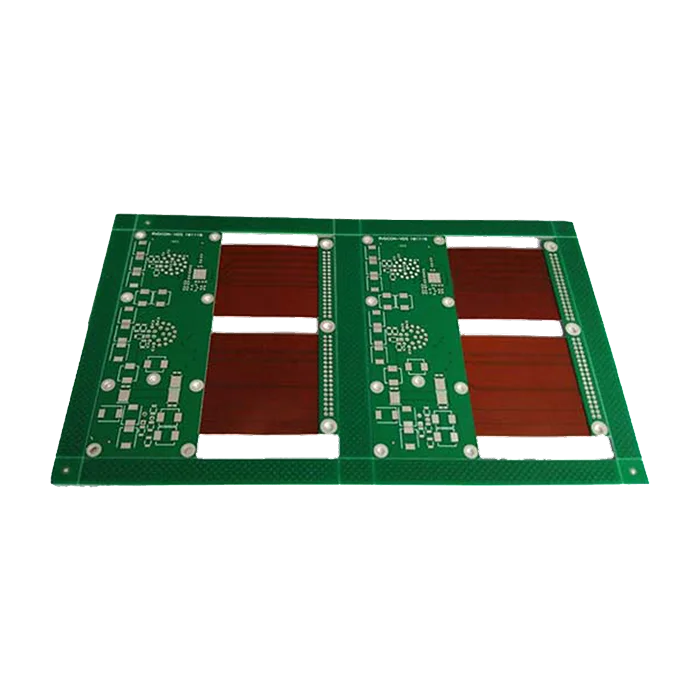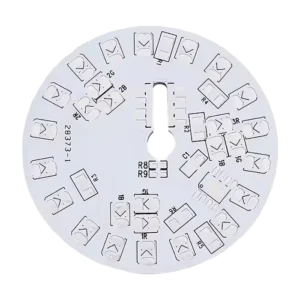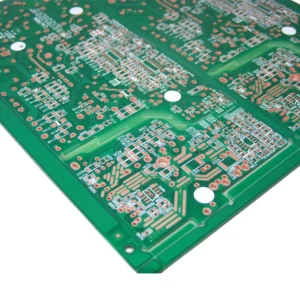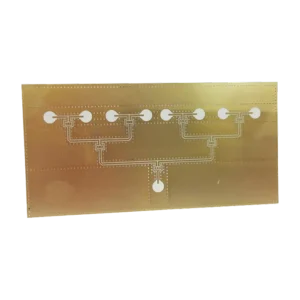Reliable and durable double sided rigid flexible PCB
$19.80
This is a 2-layer rigid-flex PCB produced by MOKOPCB, which is widely used in many fields such as medical, consumer electronics, industry, aerospace, etc. It provides rigidity for structural support and component mounting, and flexibility for dynamic movement or limited layout. Double sided rigid flexible PCB is ideal for applications that need to bend or have limited space.
Shipping fee and delivery date to be negotiated. Send inquiry for more details.
Your payment information is processed securely. We do not store credit card details nor have access to your credit card information.
Claim a refund if your order is missing or arrives with product issues, our support team would deal with your refund within 24 hours.
| Layer Counts | 2L |
| Base Material | FR-4 and Polyimide |
| Board Thickness(mm) | 1.0 |
| Max board size(mm) | 570*1200 |
| PCB size tolerance | ±0.3mm |
| Min. Hole Size | 0.1mm |
| Min. Line Width | 4mil |
| Copper Weight | 1oz |
| Surface Finish | ENIG |
| Certificate | UL, RoHS, ISO, and REACH |
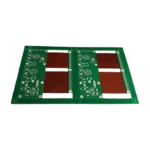 Reliable and durable double sided rigid flexible PCB
Reliable and durable double sided rigid flexible PCB
| 5 star | 0% | |
| 4 star | 0% | |
| 3 star | 0% | |
| 2 star | 0% | |
| 1 star | 0% |
Sorry, no reviews match your current selections
Questions & Answers
1.Can you assist with PCB design verification?
Yes, we provide design review support to ensure your PCB meets production standards and performs as intended.
2.Which file types are required for a quote?
We accept Gerber RS-274X and NC Drill files. Please compress all files into a .zip folder, and include a readme if needed.
3.What is the difference between rigid PCBs and flexible PCBs?
Rigid PCBs are traditional circuit boards with rigid base material like FR4, while flexible PCBs are designed to bend, twist, and fold, using flexible materials like polyimide or Polyester.
4.What are the benefits of double sided rigid flexible PCBs?
Double-sided rigid-flex PCB combines the advantages of rigid PCBs and flexible PCBs, which can save space and withstand dynamic bending. By reducing connectors and solder joints, the reliability and stability of the circuit board are improved.
5.What are the applications of double sided rigid-flex PCBs in the medical field?
They are commonly used in implantable medical devices, patient monitoring systems, diagnostic equipment, wearable health monitors, etc.

